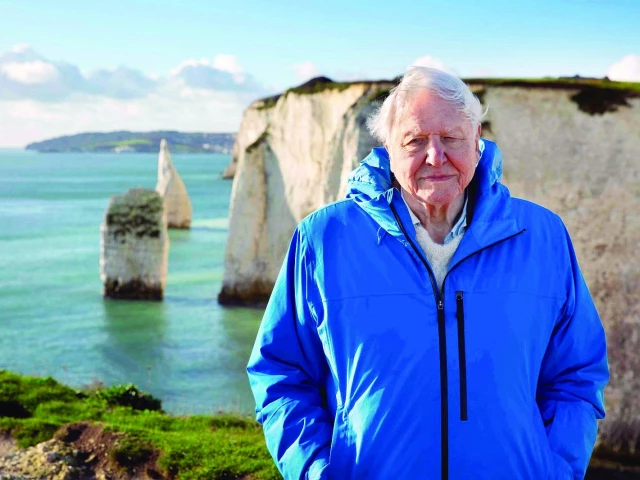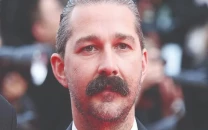Attenborough releases film ahead of 99th b-day
Ocean' depicts destruction of the seas

British naturalist David Attenborough says there is hope for the future of the planet's oceans despite the scale of their damage in his new film which premiered on Tuesday evening with King Charles in attendance.
In his latest work Ocean, Attenborough, one of the world's best-known nature broadcasters and filmmakers whose work spans seven decades, charts the challenges faced by the seas over his lifetime, from destructive industrial fishing practices to mass coral reef bleaching.
"After almost 100 years on the planet, I now understand the most important place on Earth is not on land, but at sea," he says in a trailer of the film.
Its full release in cinemas on Thursday coincides with Attenborough's 99th birthday.
"When David Attenborough started there were two TV channels and everybody knew him as the voice of nature. Now there are hundreds of channels, social media but yet he is still the voice for nature," Enric Sala, an executive producer of the film and National Geographic Pristine Seas founder, said in an interview.
Sala said it was important to showcase Attenborough's film to younger viewers.
"We hope that the younger generations coming to the screening today are going to feel so inspired that they will want to be the David Attenborough of the future," Sala said.
Despite depicting the bleak current state of the health of the ocean, discoveries of restored seabeds during filming offer hope.
"The ocean can recover faster than we had ever imagined, it can bounce back to life," Attenborough says in the film.
"If we save the sea we save our world. After a lifetime of filming our planet I'm sure nothing is more important."
The film's release comes ahead of the United Nations Ocean conference in June where it is hoped more countries will ratify a 2023 agreement to protect ocean biodiversity, which currently lacks sufficient signatories to come into force. Reuters




















COMMENTS
Comments are moderated and generally will be posted if they are on-topic and not abusive.
For more information, please see our Comments FAQ